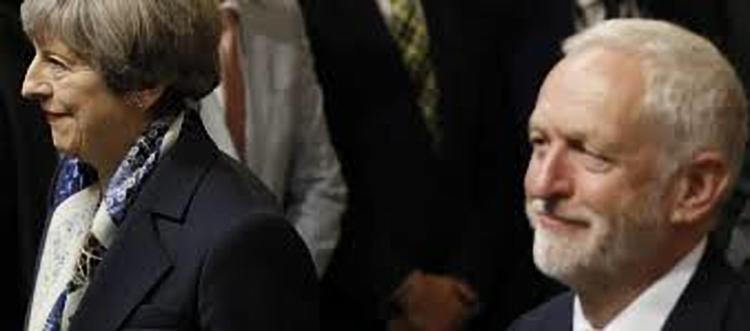The below is a dialogue based on lots of different conversations, Facebook comments and arguments. It is not a record of any one individual conversation but is rather an aggregate of different debates that anarchist communists have had with Labour Party members and supports.
Why not join the Labour Party?
Voting for any government is a leap of faith. Right now, people are hoping that the Labour Party will work in the interests of working people and not the rich. Anarchists are not willing to make that leap for many reasons. At a theoretical level we don’t believe that the individuals in positions of power make much different as they are controlled by institutional constraints. We have also studied our history and we know that Labour leaders, with much more left-wing rhetoric and more structural and popular influences pressuring them from the left have sold out the working classes. The reactionary Ramsey McDonald Labour Party is generally acknowledged across the Labour left. But let’s not forget Clement Attlee, who used troops to crush the dockers’ strike and violently suppressed the 40,000 strong squatter movement. Also the passing of austerity budgets. Then there’s Harold Wilson and, for example, the betrayal of the National Union of Seamen strikers. The list goes on and on…
What institutional constraints would hold back the Labour Party in government?
There are many. The Parliamentary Labour Party and the media will attack the Labour leadership from the first seconds of a Labour government. Furthermore capital will probably fly from the country and cause an economic crisis, right wing groups are likely to increase their activity in service of the wealthy. The reason that this is such a problem is because a significant number of those who vote for the Labour Party do not vote for radical change and are not ready for a conflict between capital and labour. There are those in the Labour Party who like to pretend that a parliamentary victory for the Labour Party constitutes a victory for socialism. This is not the case and many Labour voters will abandon the party during an economic and political crisis. The very compromises and tactical evasions which are required for a left wing party to win power make it impossible for it to wield this power once in office. Its also worth noting that it’s not at all clear how radical Jeremy Corbyn’s politics are.
There are other constraints on the party that can’t reasonably be called institution constraints but could possibly be called structural limitations. Parliamentary politics suggests to us that the general will of the public can be quantified via the ballot box. This isn’t true, the idea of a “general will,” is an intellectually useful lie but it is a lie. The public does not have a collective will, individuals and groups have opinions, views and interests and these tend to conflict. People change their mind and the framing of a question will illicit different responses. This means that no government can be said to have a meaningful mandate for radical change (or for maintaining a status quo) and therefore can only legitimate their claim to rule with violence. This in turn leads to governments having to oppress minority interests in a manner that divides their supporters and weakens their ability to make change. The strains which Brexit is putting on the Labour Party even whilst in opposition is a good example of this.
Even if the Labour Party cannot introduce socialism surely aren’t they better than the conservatives?
This question is based on a false premise. That is that wealth and security of the working class is dependent on the charity or good will of parliament and not the class’ strength and unity as a political force. Recent political history tells us that often the difference between Conservative and Labour governments is minimal (Wilson/Heath- Major/Blair- and do you really think that if Brown had won the 2010 election he would not have implemented austerity?). When governments have been able make significant changes, it has been after conflicts with the working class. That’s not to say that the exact individuals in power cannot have some influence on events, but this is largely due to the weakness of the working class as a political force.
Voting is a form of gambling. No one who voted Labour in 2001 could possibly have predicted how the party would react to 9/11 or to Bush’s invasion of Iraq, at best voting is calculated risk, often with other peoples lives as the stake.
What is the alternative?
The Anarchist Communist Group call for a revolution that abolishes private property and the state. A society that is based around free agreement and mutual aid…
But that isn’t going to happen!
What happens or not is not ordained by fate, but is the result of the decisions of individuals or groups. As such what is politically possible is dependent on the choices you make. But you are right that the political situation looks bad. The planet is on fire, capital is crushing the working class and the far right is on the rise. This is why it is vital that the radical left doesn’t invest its time and effort in a project that is doomed. Things change rapidly in politics and the Anarchist Communist Group aims to ensure that the next time crisis hits it is anarchist ideas which working people turn to. That’s why we create propaganda and organise.

